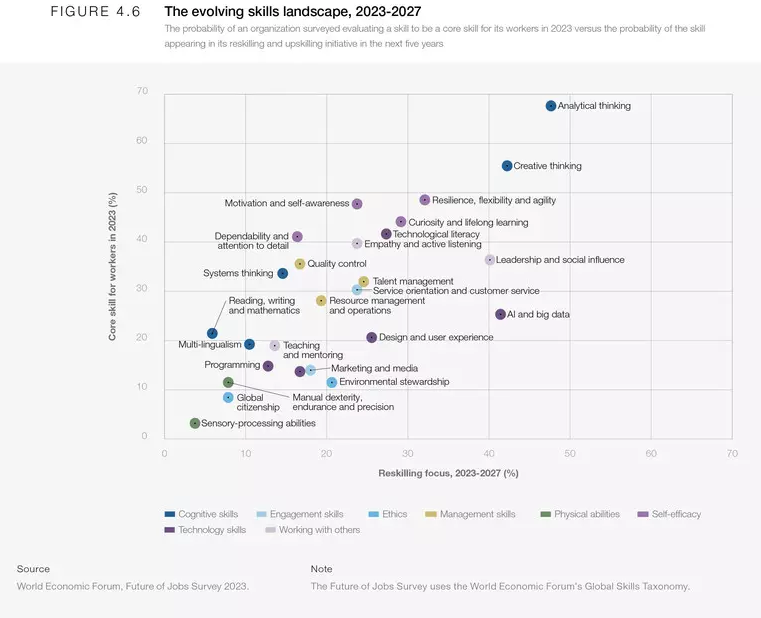

“Well, in our country,” said a still breathless Alice, “you’re usually in a different place… if you ran as fast and as long as we ran.”
“It must be a slow country!” said the Queen. “Because here, you see, you have to run as fast as you can to stay in the same place. If you want to be in another place, you have to run at least twice as fast!”
Lewis Carroll, Alice Through the Looking-Glass
Working with managers on the subject of change, I often hear the question of how fast do we need to run to move forward? The variability and the number of components that build uncertainty at work are increasing at such a speed these days. So is it enough to run twice as fast as we can today to keep up with the world we live in to manage the organisation effectively? Or is this already too slow perspective for the reality we face every day? Is so – what competencies and skills should we invest in to run several times faster than we are able today?
John Maxwell, my teacher and leadership mentor, in his book The 21 Inevitable Laws of Leadership points out that the first and key law is the ‘Law of the Upper Limit’. According to this, the level of (leadership) competence we have is the limit of our effectiveness as well as that of the team. Time is a fixed value, performance has a capacity, therefore what gives us the greatest room for manoeuvre in improving effectiveness is the right set of competencies and skills, which must be adapted to the changes taking place in organisations and the business environment they exist in.
In September 2023, Arthur Hunt and Bona Fide commissioned Groupe IFOP to conduct a study on how senior executives and managers perceive change in their company. It was carried out on a sample of 500 managers of companies operating in Europe. When asked about the dynamics of change in their organisation by 2030, 87% of respondents have said that many aspects will change or noticeably a lot. Only 11% spoke of little or no change (1%). Among the key changes, managers indicated: the changing attitudes of young people to work (82%), difficulties in recruiting and retaining employees (79%), the impact of modern technology and AI (72%), and CSR (68%). We can therefore conclude that the vast majority of managers have the conviction within themselves that they will need to run much faster than what currently constitutes our upper limit of capacity. This will require further development of competences such as adaptability, agility or change management. And in human attitudes – openness to change, as well as the ability to manage emotions.
In another question we asked to what extent the trends mentioned in the survey are desirable in the eyes of the respondents. More than 71% of the managers specified that the influence of non-financial indicators on the company’s performance is growing and that this is a desirable phenomenon (72%). And among these criteria are aspects such as the development of situational management skills (70%), the ability to manage different forms of employment such as remote work (68%), or the use of AI in work processes (57%).
When we add generational differences and the attitudes to work for Gen Z, for whom work is still important, but not a central part of their lives (87% of respondents think so) and their preferences are moving towards more flexible forms of employment (74% of responses), we approach a picture of the complexity of managerial competencies growing over time. Today, managing the team is less about its size, and more about the diversity and multi-cultural environments, challenges in getting employees interested and involved, delivering results, building desire and need to stay with the organisation for longer. Effectiveness also lies in empowering individuals, understanding their potential and limitations, creating a safe space to experiment, and succeed by experiencing and daring to reach for innovative solutions using innovative technologies and AI are becoming the real goal. The emotionality of each employee, their needs and expectations vs the potential and opportunities available within the organisation, and the different level these groups adapt technology or AI, should be also taken into account when discussing future managerial skills.
I would also like to add few words about the personal attitude of managers/leaders. What can help us to manage this complexity? There are several ideas: distance to ourselves and our beliefs in our own infallibility. Our team accepts us as being a human being who sometimes makes mistakes, does not know everything, and asks for help. At the same time they need us to listen and take into consideration arguments of the others and be active in substantive discussions. With all this, decisiveness, agility and consistency (I say what I think and I act as I say) fulfil the picture of timeless skills.
Following the trends and the use of AI in our daily work, I asked ChatGTP what it thought about the competences of the future that are crucial for managers. Here’s what AI replied:
“Future managers will likely need a combination of traditional management skills and new competencies to navigate the evolving landscape of work and business. Here are some competencies that future managers may find essential:
- Digital literacy: understanding emerging technologies and their potential applications in business will be crucial for future managers to make informed decisions and drive digital transformation within their organisations.
- Data literacy: proficiency in data analysis and interpretation will enable managers to make data-driven decisions, identify trends, and leverage insights for strategic planning and problem-solving.
- Adaptability and change management: With rapid technological advancements and shifting market dynamics, the ability to adapt to change, lead organisational change initiatives, and foster a culture of agility will be essential.
- Emotional intelligence: effective leadership requires empathy, self-awareness, and the ability to manage emotions. Future managers will need strong emotional intelligence to build trust, motivate teams, and navigate interpersonal dynamics.
- Cross-cultural competence: ss businesses operate in increasingly diverse and globalised environments, managers must be able to understand and respect cultural differences, communicate effectively across cultures, and lead multicultural teams.
- Strategic thinking: future managers will need to have a holistic understanding of their organisation’s goals, market trends, and competitive landscape. Strategic thinking skills will enable them to develop long-term visions and set clear, achievable objectives.
- Innovation and creativity: encouraging innovation and fostering a culture of creativity will be essential for staying competitive in a rapidly changing world. Managers should be able to inspire and support their teams in generating new ideas and solutions.
- Resilience and stress management: leadership roles can be demanding, and future managers will need to cultivate resilience to cope with challenges and setbacks effectively. Prioritising work-life balance and promoting employee well-being will also be important.
I checked how ChatGTP’s predictions fit into the trends. For this, I used a study commissioned by the World Economic Forum (Future of Jobs Survey 2023) on the evolving skills landscape between 2023 and 2027 (not only managerial).

To summarise: improving competences and reskilling gives us a great chance to run ahead and increase our effectiveness. It is effective way to run twice as fast as we can today. Following the recommendations of Warren Buffet or Robert Kiyosaki, developing our skills and expanding knowledge is one of the most profitable investments with a high return potential.


























